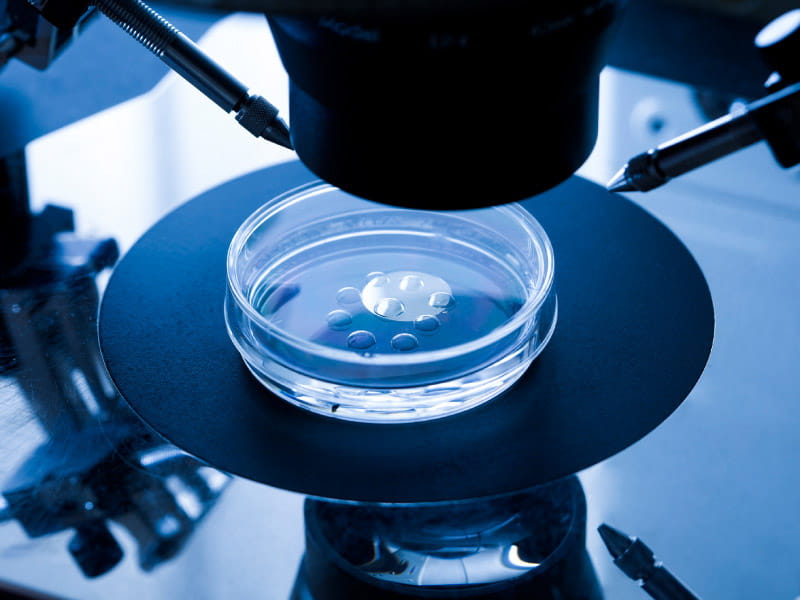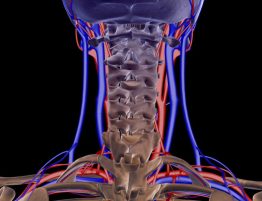
Using a frozen embryo for in vitro fertilization may substantially raise the mother’s risk for pregnancy complications related to high blood pressure, new research suggests.
The study, published Monday in the American Heart Association journal Hypertension, found fertilization with frozen embryos was associated with a 74% higher risk of high blood pressure-related pregnancy complications than fertilization with a fresh embryo or pregnancy through natural conception.
The study included a comparison of siblings conceived with both fresh and frozen embryos that led researchers to conclude the higher risk was associated with the in vitro fertilization, or IVF, process and not a risk factor associated with the parents.
“Frozen embryo transfers are now increasingly common all over the world, and in the last few years, some doctors have begun skipping fresh embryo transfer to routinely freeze all embryos in their clinical practice, the so-called ‘freeze-all’ approach,” lead study author Dr. Sindre H. Petersen said in a news release. Petersen is a Ph.D. fellow at the Norwegian University of Science and Technology in Trondheim, Norway.
“Our results highlight that careful consideration of all benefits and harms is needed before freezing all embryos as a routine in clinical practice,” he said.
High blood pressure, or hypertension, disorders during pregnancy include preeclampsia, a disorder that can endanger the health and life of the mother and fetus. In the U.S., roughly 1 in 25 pregnancies results in preeclampsia.
When pregnancies are achieved through IVF, eggs are removed from the mother’s ovaries and fertilized by sperm in the lab, creating an embryo. The fresh embryo may then be transferred to the mother’s uterus or frozen using cryopreservation. The frozen embryo may later be thawed and then transferred to the uterus. The practice of freezing embryos has become more common because of recent advancements in cryopreservation technologies.
Prior research has shown a higher risk of high blood pressure-related pregnancy complications associated with the use of frozen embryos, but researchers have been uncertain if that risk was due to the freezing process or parental risk factors.
In this study, researchers analyzed medical data for 2.4 million women in Denmark, Norway and Sweden who gave birth between 1988 and 2015. The women were between 20 and 44 years old. The study compared 4.4 million naturally conceived pregnancies, more than 78,000 pregnancies from fresh embryo transfers and more than 18,000 pregnancies from frozen embryo transfers. Researchers also included 33,000 sibling comparisons, in which siblings were conceived by the same mother using a different method.
Compared to women who conceived naturally, those who used frozen embryos during IVF were 74% more likely to develop hypertensive disorders during pregnancy, while those who used fresh embryos did not see an increased risk.
The risk of developing hypertensive disorders in pregnancy was twice as high from frozen embryo transfer compared to natural conception among women who had conceived using both methods.
“Our sibling comparisons indicate that the higher risk is not caused by factors related to the parents,” but rather that IVF treatment factors may be involved, Petersen said. “Future research should investigate which parts of the frozen embryo transfer process may impact risk of hypertension during pregnancy.”
The study also found babies conceived using IVF were more likely to be born prematurely. About 7% of babies conceived using frozen embryos were born before 40 weeks of gestation and 8% of babies conceived using fresh embryo transfers were delivered early compared to 5% of those conceived naturally.
“Our results highlight that careful consideration of all benefits and potential risks is needed before freezing all embryos as a routine in clinical practice,” Petersen said. “A comprehensive, individualized conversation between physicians and patients about the benefits and risks of a fresh versus frozen embryo transfer is key.”
If you have questions or comments about this American Heart Association News story, please email [email protected].








